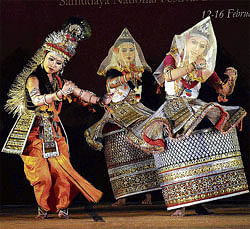
At a discussion on the novel, organised by Samudaya as part of Tagore’s 150th birth anniversary celebrations in Bangalore on Wednesday, Ananthamurthy said Tagore developed the novel with an interface between an orthodox Hindu and the liberal Brahmo Samaj.
“Gora,” the protagonist of the novel, is a staunch advocate of Hinduism.
“The construction of the main plot is so strong it makes the readers believe a strong India is possible on the principles of Hinduism. But at the end, the author proves that such a belief is just an illusion and that was the message he wanted to convey to his contemporary thinkers — Aurobindo, Bankim Chandra Chattopadyaya,” he said.
The Jnanapith Award winner said that through this novel written in 1909, Tagore viewed how India should be, and for that reason the work deserves the title “the foundational novel of India”.
He said historian and scholar Dr M Chidanandamurthy, who is known for his pro-Hindu arguments, should read “Goru”.
Reacting to the popular assumption that Tagore wrote “Janaganamana” (which was later adopted as the national anthem) to welcome a prince from England, Ananthamurthy said it was not so. For many years, the wrong information had been spread, he added.
The celebrations of Tagore’s birth anniversary concluded in the evening. Writer Chandrashekhar Kambar, K Marulasiddappa and others attended the valedictory programme.